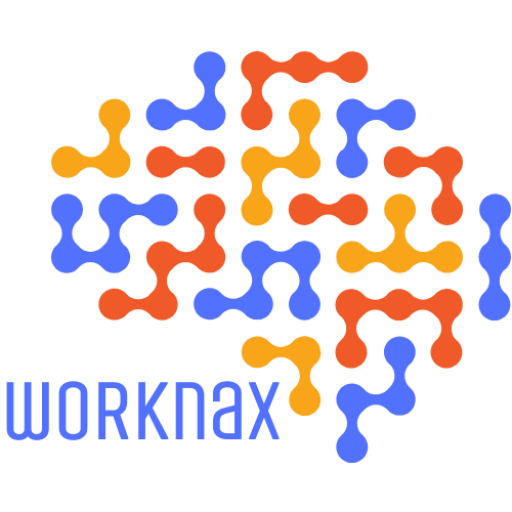Anúncios
estratégias de habilidades profissionais importam mais agora para sua carreira e desempenho profissional diário em um mercado americano competitivo. Você já se perguntou por que algumas pessoas parecem progredir mais rápido enquanto outras permanecem estagnadas? Este guia ajuda você a encontrar maneiras práticas de preencher essa lacuna.
O argumento a favor da aprendizagem é claro: o relatório de 2023 do LinkedIn mostra que 89% de líderes de aprendizagem afirmam que desenvolver as habilidades dos funcionários é vital, mas apenas 26% dos trabalhadores se sentem desafiados a aprender. Dados da Pew e da Zippia associam mais treinamento a maior satisfação no trabalho e melhor engajamento. Isso cria oportunidades para você assumir o controle com desenvolvimento profissional focado e informações selecionadas.
Esta introdução apresenta sete etapas práticas, um plano realista que você pode começar e ferramentas simples como Feedly e Alertas do Google para filtrar o que importa. Não se trata de soluções rápidas. Trata-se de uma melhoria constante que pode ser encaixada na sua agenda, com mentores, cursos ou colegas para apoiar o seu crescimento. Pequenas mudanças em habilidades de comunicação, liderança e habilidades interpessoais podem abrir oportunidades reais no seu setor e impulsionar seus objetivos de carreira sem sobrecarregar o seu dia.
Por que o desenvolvimento profissional é importante agora nos Estados Unidos
Rápidas mudanças tecnológicas e novos modelos de negócios estão remodelando a maneira como as pessoas trabalham. Desenvolvimento profissional é como você se mantém útil e encontra novas oportunidades em seu setor.
O relatório de 2023 do LinkedIn descobriu que 89% de líderes de L&D consideram essencial o desenvolvimento das habilidades dos funcionários, mas apenas 26% de trabalhadores se sentem motivados a aprender.
Essa lacuna significa que você pode assumir o controle do seu próprio crescimento. Cursos de curta duração, treinamentos para fornecedores, webinars e Alertas do Feedly ou do Google ajudam você a monitorar informações sem gastar muito tempo.
Por que isso é importante:
- Quando as pessoas crescem, as organizações veem melhores resultados e maior lucratividade.
- Renovar suas habilidades de comunicação e liderança melhora a maneira como você lida com tarefas e influencia decisões.
- Associações e eventos locais dão acesso a ferramentas e redes além das mídias sociais.
Escolha algumas maneiras focadas de aprender, crie uma rede em sua empresa e setor e faça progresso constante — pequenos passos se somam a ganhos reais na carreira.
Estratégias de habilidades profissionais que realmente funcionam
A prática diária e passos claros impulsionam sua carreira mais do que cursos ocasionais. Use pequenos experimentos que você pode fazer esta semana para aprimorar sua maneira de trabalhar, liderar e decidir.
Fortalecer as habilidades de comunicação com os seis Cs e a escuta ativa
Aplique os seis Cs — Compaixão, Clareza, Concisão, Conexão, Convicção e Coragem — ao planejar uma palestra ou e-mail. Descreva um ponto claro, corte linhas extras, adicione um breve exemplo e pratique um encerramento confiante.
Aprimore a tomada de decisões como um processo diário
Trate as decisões como etapas: defina o problema, liste as opções, defina os critérios, faça uma rápida pré-mortem, escolha e agende uma breve revisão. Essa revisão ajuda você a aprender e se adaptar ao trabalho.
Desenvolver pensamento estratégico para agregar valor
Mapeie como sua equipe cria valor para clientes, colegas de trabalho e fornecedores. Proponha uma mudança modesta em sua função que economize tempo ou dinheiro.
Pratique a resolução de problemas e a criatividade
Rastreie um gargalo recorrente, meça seu impacto, gere três correções e teste a mudança menos arriscada por uma semana.
Expanda sua rede e desenvolva conhecimento analítico
- Crie um mapa de poder simples para encontrar pessoas importantes no seu setor e entre em contato com elas com uma pergunta clara.
- Faça uma pesquisa com 5 perguntas, verifique as tendências sociais e use os resultados para fundamentar uma recomendação.
Aprimore a negociação e a inteligência emocional
Liste seus interesses e os deles, prepare duas compensações que criem valor e pratique rotular sentimentos antes de responder.
“Pequenas ações repetíveis são o que fazem as carreiras avançarem.”
Crie um plano de desenvolvimento profissional sustentável
Você progride mais quando o desenvolvimento se adapta ao seu ritmo semanal e às suas tarefas reais. Comece com um breve plano de ação que corresponda ao seu trabalho e ao tempo disponível.

Defina metas de desenvolvimento claras e acompanhe o progresso sem se sobrecarregar
Escolha duas metas de desenvolvimento vinculadas aos resultados do negócio e às suas metas de carreira. Defina uma métrica por meta que você possa revisar mensalmente — sem tarefas adicionais que você não consiga sustentar.
Lista de verificação rápida:
- Duas metas com uma métrica de sucesso simples.
- Limite semanal (exemplo: 2 horas) para que o aprendizado se ajuste à sua agenda.
- Uma ação por semana e uma breve nota sobre o impacto.
Escolha canais de aprendizagem com sabedoria: cursos, certificações e mentoria
Compare os programas, a formação do instrutor e as avaliações antes de pagar. Combine módulos online curtos, uma certificação específica, se adequada ao seu nível, e mentoria para feedback prático.
Use eventos e comunidades do setor para aprender novas habilidades mais rapidamente
Adicione workshops, encontros ou fóruns de associações locais ao seu calendário. Use os Alertas do Google e um leitor RSS como o Feedly para filtrar atualizações que correspondam aos seus objetivos.
Mantenha o plano flexível: mude os cronogramas em vez de abandonar o progresso e revise as opções educacionais trimestralmente para permanecer no caminho certo.
Ferramentas, exemplos e aplicações do mundo real para se manter à frente
Use algumas ferramentas práticas para coletar informações oportunas e transformá-las em ações que você pode testar esta semana. Esses métodos ajudam você a se manter à frente sem adicionar tempo extra ao seu trabalho.
Organize seu fluxo de conhecimento: Alertas do Google, RSS (Feedly) e fontes especializadas
Crie Alertas do Google para duas palavras-chave do setor e envie-as para uma pasta específica. Crie um pacote do Feedly com cinco blogs confiáveis para aprender novas habilidades em blocos de leitura de 10 minutos.
Aplique dados no trabalho diário: pesquisas, monitoramento de mídia social e entrevistas com usuários
- Adicione um webinar de fornecedor a cada mês e mapeie notas para tarefas específicas que você pode melhorar.
- Faça uma pesquisa com cinco perguntas e valide os padrões com três entrevistas curtas para elaborar uma recomendação rápida.
- Monitore os comentários nas redes sociais semanalmente em busca de perguntas recorrentes e transforme-as em uma solução testável.
Mantenha-o prático: Use um modelo de nota simples: o que mudou, por que isso importa para a empresa e o próximo passo. Divida a curadoria em dois blocos semanais para que seu trabalho e sua rede se mantenham atualizados sem a constante troca de contexto.
“Trate as ferramentas como facilitadores, não como fins; alinhe cada novo esforço de desenvolvimento de habilidades com um resultado de trabalho claro que você possa definir em uma frase.”
Conclusão
Pequenos e constantes movimentos de aprendizado acrescentam um impulso real à sua carreira. Encare o desenvolvimento profissional como um plano pessoal e ritmado que você pode registrar na sua agenda. Escolha uma abordagem, defina uma métrica simples e agende uma primeira avaliação em quatro semanas.
Habilidades interpessoais e habilidades de negócios se reforçam mutuamente em diferentes funções e organizações. Seja você iniciante ou já esteja em um nível mais avançado, mentores, cursos de curta duração ou um coach podem acelerar seu raciocínio e execução sem prometer resultados imediatos.
Mantenha metas realistas, reserve um tempo que você possa proteger e compartilhe os resultados com outras pessoas para abrir oportunidades. No fim das contas, o melhor plano é simples: ciclos curtos de feedback e aprendizado que você pode aplicar esta semana para impulsionar seu crescimento profissional.



